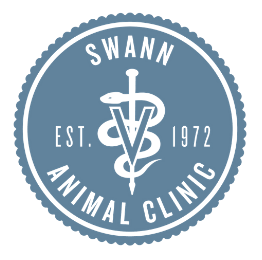It is pretty clear that the world has been turned upside down in the past couple of weeks. What started out as a possible concern has now turned into a life-altering event. COVID-19 has brought uncertainty, fear, and isolation. During this time, those in the medical field are fighting for our safety and health. Not only in human medicine, but in veterinary medicine too! So today, I want to address the health concerns for your furry loved one.
COVID-19 is a beta coronavirus that began in China and has spread throughout the world, including most states in the United States. Transmission primarily occurs when there is contact with an infected person’s bodily secretions, such as saliva or mucus droplets in a cough or sneeze. Transmission via touching a contaminated surface or object and then touching the mouth or nose appears to be a secondary route. Smooth, non-porous surfaces (countertops, doorknobs, cell phones) transmit the virus better than porous materials (paper money, pet fur) because porous materials absorb and trap the pathogen (virus), making it harder to contract through simple touch. At this point, there are no anti-viral drugs recommended or approved by the FDA for this disease, and there is no immunization available. The best way to avoid becoming ill is to avoid exposure to the virus. Taking typical preventative actions (washing hands thoroughly, social distancing, not sharing food/drinks, covering your mouth when coughing/sneezing, not shaking hands or hugging) is key. Signs of the disease in humans are flu-like symptoms, including mild to severe respiratory illness with fever, cough, and difficulty breathing. People are infectious for approximately five to seven days before showing symptoms. The COVID-19 quarantine period for people is 14 days.
There has been one case reported of a dog testing positive for COVID-19. This was the pet of a man in China that was positive for the virus. The dog was tested with a real-time reverse transcriptase-polymerase chain reaction. This is a test that looks for the RNA of the virus. It cannot distinguish between intact RNA (which is contagious) or RNA fragments (which are not contagious). The experts do believe that the virus may have spread from the infected owner to his pet, in this particular case. This pet dog was one of two pet dogs under quarantine. The second pet dog has had negative results of tests for the virus. Neither dog has shown any signs of being ill with COVID-19. In another testing, IDEXX (a well-established veterinary laboratory) announced that it has evaluated thousands of canine and feline specimens during the validation testing of its new test system for the COVID-19 virus and had obtained no positive results. Considering all of this information, infectious disease experts and multiple international and domestic human and animal health organizations agree that there is no evidence, at this point, to indicate that pets can get this virus from their owners. This is great news for your furry loved ones!
Thankfully, there is also absolutely no evidence at this time that shows that your pet can give you the disease. However, out of an abundance of caution, I always recommend taking the same common-sense approach when interacting with your fur babies. Be sure to wash your hands after each interaction and do not allow any people with clinical signs to interact with your pets.
If you or someone in your family are to become ill, I suggest having a plan for someone else to care for your pets. This will ensure they are able to be cared for properly while you are ill. I strongly suggest having an emergency kit prepared, with at least two weeks’ worth of your pet’s food and any needed medications. This is a good idea in case of quarantine or self-isolation when you cannot leave your home.
This is the most current information we have thus far. I will update you with more veterinary information as it is released. If you have any questions or concerns about your pets during this time, please reach out to your veterinarian. I hope that in this time of worry, I was able to bring some small comfort for you and your fur kids. Please remember that we are all going through this together. Remember to be kind and patient with those around you. Please listen to the medical authorities and be safe!
About the Author
 Dr. Heritage Enevoldsen
Dr. Heritage Enevoldsen
Dr. Heritage Enevoldsen was born and raised in Amarillo, Texas. She had always dreamed of finding a job that would allow her to minister to and bless people, but also involve her love for animals, so being a veterinarian was just the right fit! She received her Bachelor of Science from Texas A&M University before graduating from Texas A&M College of Veterinary Medicine in May of 2017. Her goal was always to come back and serve the people of the Texas panhandle. Dr. Enevoldsen has a special interest in dermatology, surgery, and dentistry as well as client education. When she isn’t working at the clinic, Dr. Enevoldsen loves spending time with her son and husband, reading, and anything to do with the Fighting Texas Aggies. She is a dog mom to her pet, Mark, who is the most handsome mutt you have ever seen.
